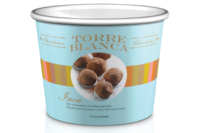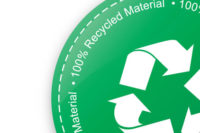The Flexible Packaging Association (FPA) commissioned PTIS, LLC to provide a holistic view on the sustainability benefits that flexible packaging offers. The resulting report, “A Holistic View of the Role of Flexible Packaging in a Sustainable World,” achieved this goal while also providing foresight into future sustainability implications of these versatile materials. Included in the report were six life cycle assessment (LCA) case studies comparing flexible packaging to other packaging formats across a range of products. An LCA is a method for characterizing impacts associated with the sourcing, manufacturing, distributing, using, and disposing of a product or product system.
The report focuses on the segment of the industry that adds significant value to flexible materials, usually by performing multiple processes such as printing, laminating multiple layers, and coatings, all of which aid in the performance of the material, improve the consumer/user experience, and extend the shelf life of the product. It focuses on the U.S. perspective, though global data and context are utilized to provide a broader picture and looks at the current state of flexible packaging, while also providing foresight into potential future implications.
Six LCA case studies were developed for packaging different products using the EcoImpact-COMPASS LCA software, which allows for quick life cycle comparisons between different packaging formats. The case studies include packaging for baby food, cat litter, ground coffee, laundry detergent pods, motor oil and single-serve juice flavored beverages. The results from the case studies show that flexible packaging has more preferable environmental attributes for carbon impact, fossil fuel usage, water usage, product-to-package ratio, as well as material to landfill when compared to other packaging formats.
Several different outreach materials were developed from the report including factsheets for the individual case studies; the “Sustain the World: the Case for Flexible Packaging” brochure, which presents the results of all six LCA case studies in abbreviated form; infographics; and various social media macros. All of the outreach materials are available for download on FPA’s website, flexpack.org.
Flexible packaging offers many sustainability benefits throughout the entire life cycle of the package when compared to other packaging formats including lightweight/source reduction; transportation benefits due to inbound format and lightweight nature; shelf life extension; reduced materials to landfill; high product-to-package ratio; and beneficial life cycle metrics.
Despite the number of sustainability benefits, there are challenges facing the flexible packaging industry. The main challenges are post-consumer packaging material collection and recycling. There is currently a lack of recycling options for multi-material laminated films, such as snack bags and foil pouches, which are difficult to separate into their various material substrates.
The industry is responding to these challenges with new initiatives to address the end-of-life management of flexible packaging. These include technologies to drive collection and recovery of flexible packaging materials, including auto-sortation; investigation of new materials including compostable and bio-based structures; enhanced processing technologies and viable end markets for recycled material.
Several industry collaborations are working to identify technologies to make the collection and sortation of flexible packaging waste feasible and economically effective, as well as research into chemical recycling, which degrades the mixed plastics into monomers or basic chemicals to turn into new products. Other programs such as waste-to-energy (WTE), which use the combustible energy from difficult to recycle plastics, are widely used in Europe and Asia and may provide additional recovery processes in the United States.
For more information on “A Holistic View of the Role of Flexible Packaging in a Sustainable World,” please visit flexpack.org, or contact FPA at fpa@flexpack.org or 410-694-0800.



